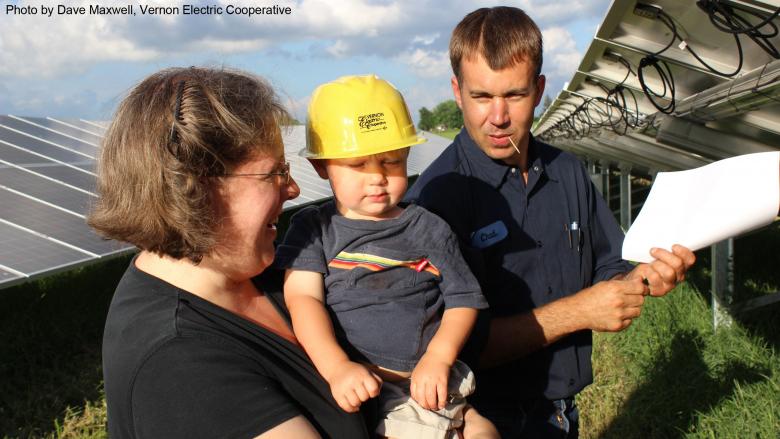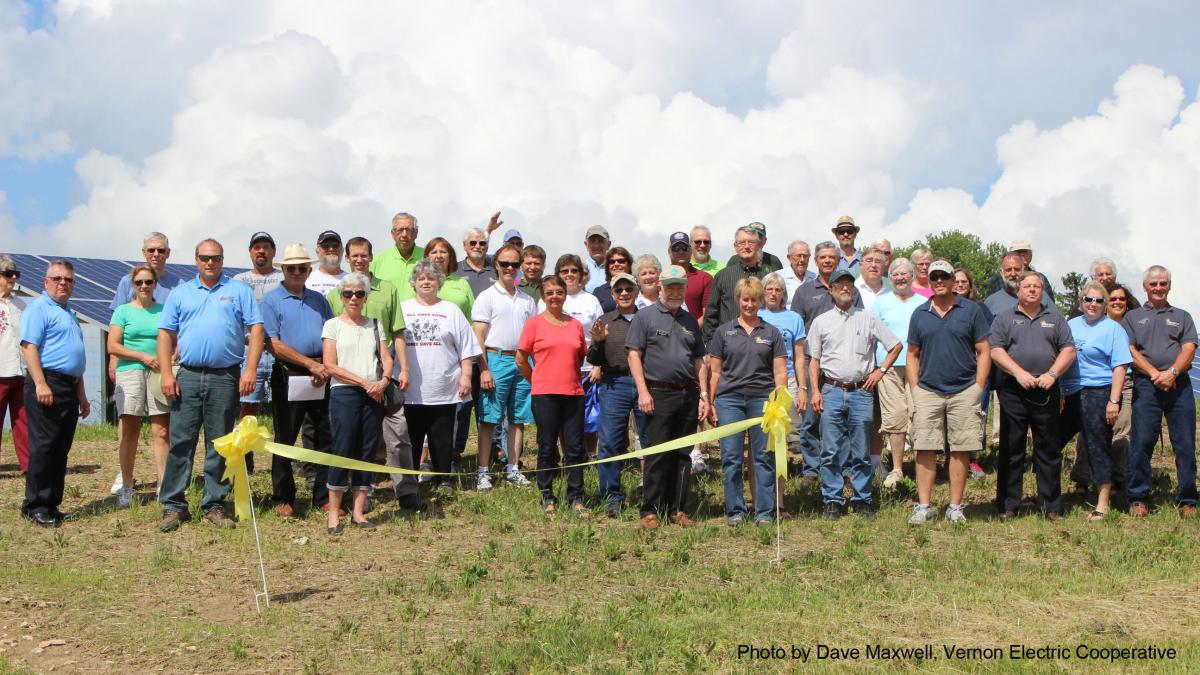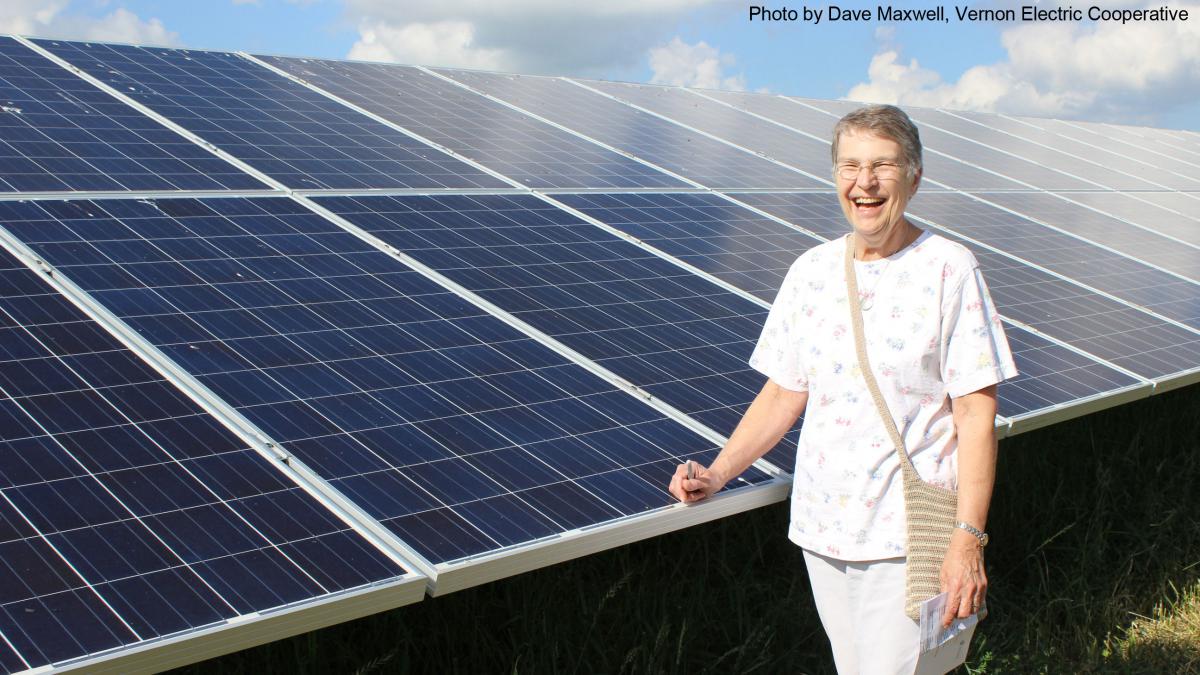
Vernon Electric Cooperative (VEC), a 10,500 member-owned electric distribution cooperative in Westby, Wisconsin, is a leader in offering community solar and facilitating the construction of utility scale solar projects. VEC partnered with its power supplier, Dairyland Power Cooperative, (DPC) and Clean Energy Collective, LLC to build a 500 KW solar array and a 300 KW community solar farm. By taking advantage of economies of scale, VEC was able to sell 305-watt community solar panels for only $600. “We are excited to have constructed the first community-owned solar project in the state of Wisconsin,” said Vernon Electric’s CEO, Joe McDonald. “We know this will be a valuable local energy solution for our members.”

Highlights of the 305 kW community solar project are:
- First community solar project in Wisconsin
- Lowest cost (<$2 a watt) offering in the country
- Project sold out the fastest in the country relative to its size
- 979 panels sold out in 2 weeks
- First community solar project paying less than retail rate
- Fast payback of 13 years
- Tremendous educational opportunity on solar energy cost and output
- First project to control vegetation with sheep
- Generates enough electricity to power 30 homes
- All generation stays locally
Highlights of the 500 KW Dairyland Power Cooperative solar project are:
- Reduces the system’s summer peak demand
- Hedges the cost of 500 kW energy generation
- Increases renewable energy portfolio
- Provided huge economies for pricing on community solar panels
- Generates enough electricity to power 60 homes
- All generation stays locally
Currently, VEC is partnering with DPC and SoCore LLC to construct 2.3 MW of solar energy in Vernon County. There will be 1 MW at each end of our service territory at two of our substations. Dairyland Power will purchase 2 MW of the solar energy, while VEC will purchase .3 MW of the solar energy output for the benefit of all our members. This will have the same benefits highlighted above. When the construction is completed this summer, VEC will be delivering 3.1 MW of solar energy to its members.
VEC offered $71 a panel rebates from our Do Watt$ Right energy efficiency program. The major hurdle was negotiating the legal and contract details. The City of Westby, Town of Christiana, Town of Franklin, Town of Greenwood, the Wisconsin DNR, and neighbors were all very cooperative and helpful. Having a supportive board of directors and power supplier made these projects happen.

Developing renewable and sustainable solar energy has generated more interest in our community about solar energy and is an accurate and reliable solar energy educational resource. Specific benefits of 3.1 MW of local solar energy include:
- Annual output: 4,100,000 kWh (electricity for 340 homes)
- Lifetime avoided CO2 output over lifetime: 305,000,000 lbs.
- Lifetime equivalent car miles avoided: 350,000,000
- Lifetime equivalent trees planted: 480,000
For communities interested in developing a community-owned solar project, McDonald recommends using an experienced community solar partner like Clean Energy Collective. McDonald also keeps a list of "lessons learned" that he's presented to communities across the state. These include:
-
The original project was 10-times more complex than I thought. The devil is in the details (Tax, legal, PPA, ….), so use a renewable enerngy attorney/
-
Keep your board informed. SWOT analysis exercizes helped guide our board and staff.
-
Don’t try to set precedents.
-
Decide how much control do you want.
-
The price point is important ($600 - $700).
-
Most members loved the idea from the start!
-
Limit the number of panels purchased by any one member.
-
Negotiate – Negotiate – Negotiate.
-
Some members can’t use 30% tax credits so community solar is a cheaper option for them.


